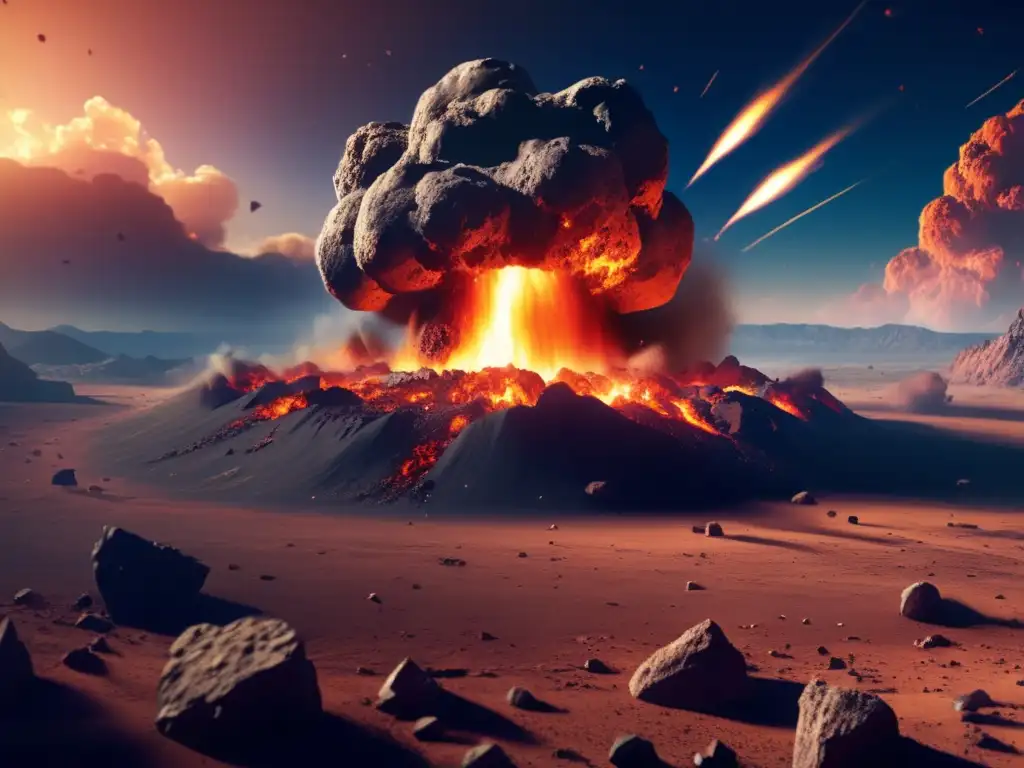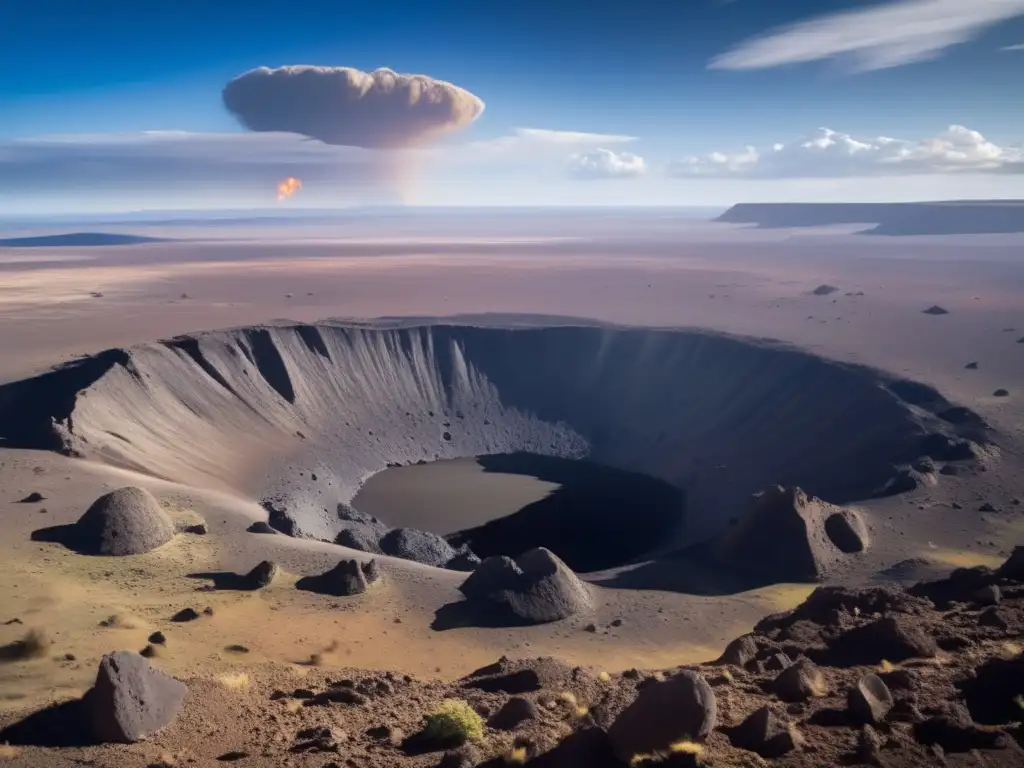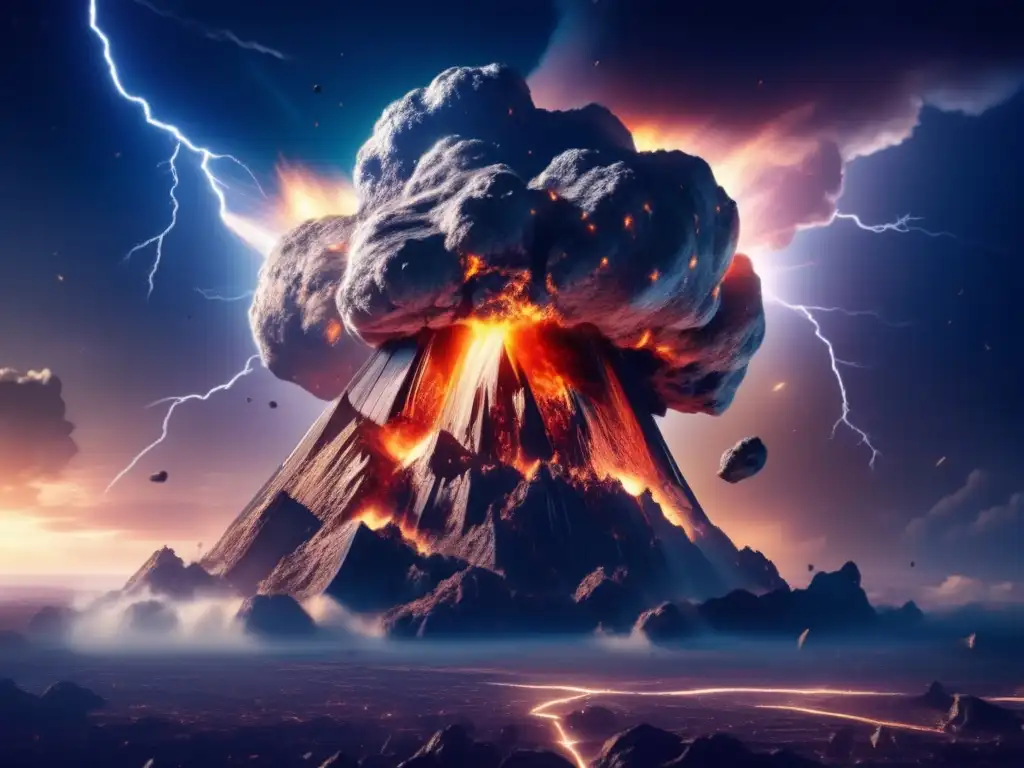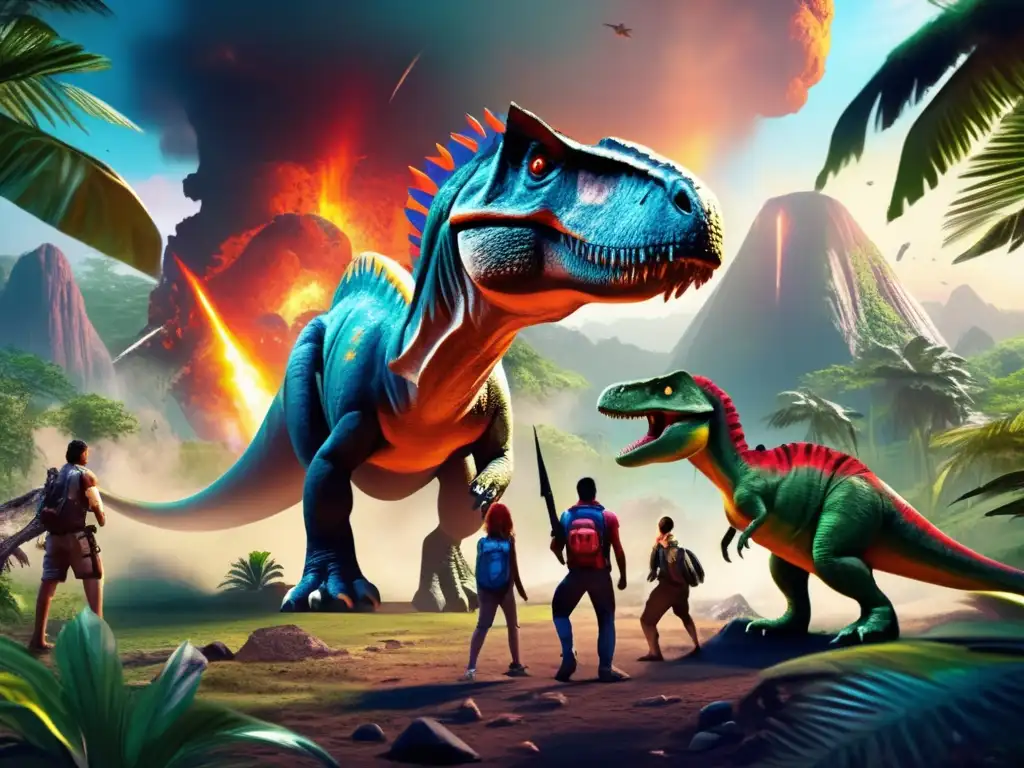When Earth Shook: The Asteroid Strike That Doomed Dinosaurs

Introduction
Astroid impacts have shaped the history of our planet and played a crucial role in the evolution of life on Earth. One of the most famous asteroid strikes is the one that led to the extinction of dinosaurs about 66 million years ago. The asteroid impact caused catastrophic changes in the environment, leading to the collapse of ecosystems and the disappearance of various species. In this article, we will explore the details of the asteroid strike that doomed dinosaurs and its significance in the history of our planet.
The Asteroid Strike

The Impact and Its Consequences
The asteroid that hit the Earth was about 10-15 km wide, and it struck the Yucatan Peninsula in what is now Mexico. The impact was so massive that it released energy equivalent to billions of atomic bombs, creating a crater that was more than 180 km in diameter. The force of the impact created intense heat, shock waves, and seismic activity that triggered a chain of events that led to the extinction of dinosaurs and many other species.
The immediate aftermath of the impact was characterized by intense earthquakes, tsunamis, and volcanic eruptions that spewed ash and gas into the atmosphere. The impact also created a huge dust cloud that enveloped the planet, blocking out the sun's light and causing global cooling. The combination of darkness and cold made it impossible for plants to photosynthesize, leading to a cascade of effects throughout the food chain.
Extinction of Dinosaurs
The asteroid strike was the final blow that pushed the dinosaurs towards extinction. While the impact itself would not have killed them all, the combination of factors that followed made it impossible for them to survive. With their food sources depleted, many dinosaur species went extinct, and the ones that survived were unable to adapt to the new conditions. The end of the dinosaurs paved the way for the evolution of mammals, which eventually led to the emergence of humans.
Scientific Evidence
The evidence for the asteroid impact that killed the dinosaurs is incontrovertible. Scientists have found a thin layer of sediment around the world that corresponds to the time of the impact, and it contains high levels of iridium, a rare element that is not found in significant amounts on Earth's surface. The high levels of iridium are believed to have come from the asteroid itself, providing conclusive proof that an extraterrestrial object hit the Earth at that time.
The Significance of the Asteroid Strike

Impact on Ecosystems
The asteroid strike had a profound impact on the Earth's ecosystems, leading to the extinction of not only the dinosaurs but also many other species. The event paved the way for new forms of life to emerge, including mammals and eventually humans. The aftermath of the impact is a reminder of the vulnerability of life on our planet and the importance of understanding the risks posed by asteroids and other celestial objects.
Understanding the Risks
The asteroid strike that doomed the dinosaurs serves as a wake-up call for us to understand the risks posed by asteroids and other celestial objects. While the likelihood of a catastrophic impact is low, the consequences would be dire if such an event were to happen. By studying the history of asteroid impacts and developing strategies to mitigate the risks, we can help prevent future catastrophes and protect life on our planet.
Exploration and Discovery
The study of asteroid impacts also has important implications for space exploration and discovery. By studying the composition and behavior of asteroids, we can gain insights into the formation and evolution of our solar system. We can also explore the potential of asteroids as resources for future space missions and even as a source of building materials for habitats on other planets.
Frequently Asked Questions

-
What caused the extinction of dinosaurs?
The extinction of the dinosaurs was caused by a combination of factors, including the asteroid impact, volcanic eruptions, and climate change.
-
What was the size of the asteroid that hit Earth?
The asteroid was about 10-15 km wide.
-
What evidence supports the theory of an asteroid impact?
Scientists have found a thin layer of sediment around the world that corresponds to the time of the impact, and it contains high levels of iridium, a rare element that is not found in significant amounts on Earth's surface.
-
What are the risks posed by asteroids?
While the likelihood of a catastrophic impact is low, the consequences would be dire if such an event were to happen. By studying the history of asteroid impacts and developing strategies to mitigate the risks, we can help prevent future catastrophes and protect life on our planet.
-
What is the significance of studying asteroid impacts?
The study of asteroid impacts has important implications for understanding the history and evolution of our solar system, as well as for space exploration and discovering new resources.
Conclusion
The asteroid strike that doomed the dinosaurs is a reminder of the fragility of life on our planet and the importance of understanding the risks posed by asteroids and other celestial objects. By studying the history of asteroid impacts, we can gain insights into the evolution of our solar system and develop strategies to mitigate the risks of future catastrophes. The study of asteroids also has important implications for space exploration and discovery. Thank you for reading, and we encourage you to share your thoughts in the comments section and engage with www.asteroidrealm.com.
Additional Resources

For more information on asteroid impacts, see the following resources:
 From Asteroids To Ash: Tracing The Path Of Extinction
From Asteroids To Ash: Tracing The Path Of Extinction Reign Ended: How Asteroids Concluded The Dinosaur Era
Reign Ended: How Asteroids Concluded The Dinosaur Era In The Wake Of Destruction: The Asteroid-Dinosaur Nexus
In The Wake Of Destruction: The Asteroid-Dinosaur NexusIf you want to discover more articles similar to When Earth Shook: The Asteroid Strike That Doomed Dinosaurs, you can visit the Asteroids and Dinosaurs category.
Leave a Reply

Articulos relacionados: